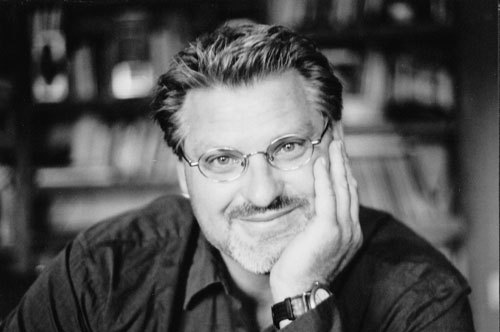"The boss of the Arts Café, he sank slowly. Oh, he happened to have costumers sometimes! But three dishes of the day do not make the day. I imagine easily the financial abyss that meant, and more, the unspeakable anguish of losing everything because, basically, we know nothing of our contemporaries when we thought we know, when we thought even to know what was good for them. But they do not want that. And if they do not want it is that they do not want you."
How to Become a Monster tells the story of Viktor Rosh, a silent child that became a Chef in adulthood. Emancipating from his mother womb, Viktor finds himself at the end of his studies in full economic crisis. Knowing a supplier of hot dogs, he will start to import these products from abroad that he considers to be shit just to live by a small improvised rolling kitchen. It will cover the Capital, taking advantage of the poor by serving a meal he hates and is disgusted from. Yet he had a dream: to have his own coffee shop. One day before his eyes, will materialize his dream, but conquered by someone other than himself. He did not wish him to fail, but it will, because his contemporaries will not concern themselves with it.
In quest of adventures, one day he will leave the Capital to find work in region: he becomes the Chef of a sawmill. The economy is at its lowest and doesn't allow him to buy the food he would like to cook, he will travel the country to buy at lower prices from farmers in the area.
But one day, war comes over.
The sawmill is closed. He will remain there in pain, seeing all his ruined peasants, dependents to the mill, to his own purchases. He decides to engage in a secret army against the government that allowed all that misery to happen.
This book tells the descent into hell of a man with a valiant heart. The narrative oscillates between the lawyer without frontier committed to defend the accused, tracing his history, and the history of the accused, told by his mouth, at the end of the book, while the lawyer succeed in winning his confidence, by showing him his humanity.
Viktor will kill. He will kill men, women and children. In the midst of his ordeal, he will retire from among the livings in order to live as a hermit. He described the death of a bear that he will try to capture during many weeks, and from which he will discover the unbearable pain of death in its eyes.
What drives a man to kill?
What drives a man to kill a newborn baby?
What drives a man crazy? To withdraw from the world of the livings?
What pushes a society to nickname a man "the monster"?
What makes parents to dissociate themselves from their offspring?
"- What can we say of our child? All I know about him is what I wanted to see. What looks like me. What looks like his father. What does not look like us. I know what you want to know. You want to know his injuries. Why would people think that parents know their children's injuries? Our children, we try to make them laugh, not make them cry. We finally know what makes them happy. But their tears, they are avoided. I wanted to preserve him from grief, so that at the end, when Viktor was crying I did not know why. Sometimes I guessed. At the beginning. But the more time passes, the more the pain of our children we become strangers. I am seventy years, and when I cry, my husband is taken aback. He does not cry, he swallows his tears. I do not understand. Forty-three years of marriage. I can do nothing for him. He can not do nothing for me. Our tears belong to us."
"You never killed or had the opportunity to do so. You may not know, you do not want to know. Because if you killed, you would perhaps discovered power. And this idea is unbearable. As Puritans who take their shower fully clothed, you do not even want to think about killing because you're afraid to love it. Deep inside you, you know it exists, you know it's a possibility. You know you're a killer and that human life does not matter even if you don't want to think about it in that way. Otherwise, you would not leave children in Africa starving, you'll drop everything to go help them. But no. Here you are, and for what? To defend my son? To defend a monster? "
Jean Barbe, Quebec writer and journalist, was born in 1962 in Montreal. This book, How to Become a Monster, won a literary success for a while. And with good reason, this book took me to the heart. I spent whole nights flipping its pages, and three weeks to get over it. Barbe claims here awareness about war, human cruelty in many of its forms. He asks us almost "And you, did you become a monster in spite of all? ".
"Who could decide what is a decent level of horror? Where civilization ends and where barbarism begins when the second claims to be the first? Laws winner still apply retroactively. "


No comments:
Post a Comment